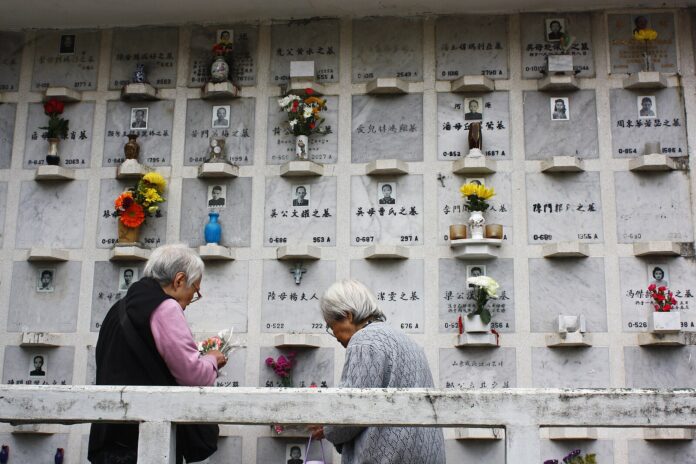by Kimberly Szeto
As the scent of burning incense wafts through the air, families gather around ancestral gravesites to celebrate Qingming Festival (清明節), also known as Tomb-Sweeping Day. The day unfolds as a poignant blend of tradition and reverence.
The traditional annual observance is rooted deeply in Chinese culture that not only pays homage to ancestors but also serves as a vibrant tapestry connecting past, present, and future generations. It is typically celebrated on April 4, 5 or 6.
For families like Jeanne Trang’s, who is a second generation Chinese American, and Danning Zhang’s, from Shenyang, China, the rituals of tomb sweeping, offering making, and symbolic burning are more than mere traditions; they are intricate threads weaving together familial bonds and cultural identity.
During the festival, families engage in traditional customs such as tomb sweeping, making offerings, and burning symbolic items. Trang’s family, in particular, follows a routine meticulously coordinated by her mother, who consults Chinese fortune teller books to determine auspicious days.
“My mother determines which days are lucky with all of our zodiac signs and which days we should avoid,” Trang explains. “She coordinates with my uncles and my aunts to figure out when to visit family gravesites.”
This careful planning ensures that their visits are not only respectful but also aligned with traditional beliefs and customs. Both Trang and Zhang families prepare by buying fruits and favorite foods of their grandparents and ancestors, as well as snacks for offerings. Joss papers (冥幣/紙錢) are folded and “goodie bags” are prepared with money and other items for burning later. At the tombstones, each family member has a designated role, such as cleaning, changing flowers, preparing incense, and moving items for the ceremony. The ritual of praying honors their ancestors and reinforces family bonds.
Participating in activities like flying kites, wearing willow branches, and riding swings are traditional elements of the festival’s spring outing aspect. Spring outings during Qingming celebrate nature’s renewal, fostering joy and well-being. Flying kites holds particular importance during Qingming. Kites adorned with lanterns symbolize stars, while cutting the kite string signifies good fortune and the warding off of ailments.
Learn more about the Qingming Festival through this video by China Travel.
AsAmNews is published by the non-profit, Asian American Media Inc.
We are supported through donations and such charitable organizations as the Robert Wood Johnson Foundation. This holiday season, double your impact by making a tax-deductible donation to Asian American Media Inc and AsAmNews. Thanks to additional benefactors, all donations will now be matched up to a total of $17,000.
Please also follow us on Instagram, TikTok, Facebook, YouTube and X.


